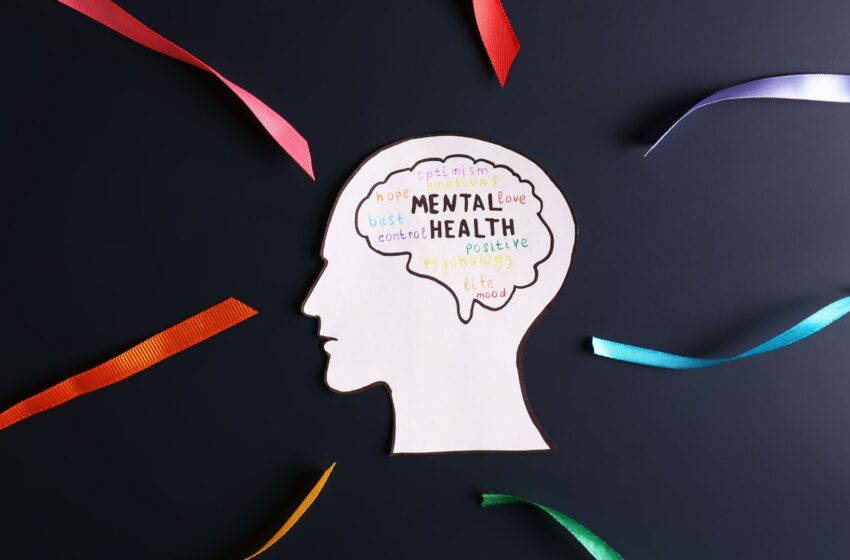Your Mind Matters: A Modern Guide to Mental Health

In our busy lives, we often prioritize our physical well-being. We get annual check-ups, eat our vegetables, and try to get to the gym. But how often do we check in on our mental health with the same level of care and intention? For many, this crucial aspect of our overall health remains an afterthought, shrouded in silence and misunderstanding. This article is a conversation starter, a friendly guide to understanding, nurturing, and advocating for the well-being of your mind.
What Is Mental Health, Really?
Let’s start with the basics. What is mental health? A common mental health definition describes it as our emotional, psychological, and social well-being. It influences how we think, feel, and act. It also helps determine how we handle stress, relate to others, and make choices.
Think of it not as a binary state of being “healthy” or “ill,” but as a spectrum we all move along throughout our lives. Everyone has moments of stress, sadness, anxiety, or low mood. Good mental health isn’t about the absence of these feelings; it’s about having the resilience and tools to navigate them effectively. It’s the foundation for building strong relationships, adapting to change, and facing life’s many challenges.
Why Talking About It is So Powerful: The Rise of Mental Health Awareness
For decades, stigma kept conversations about psychological well-being behind closed doors. Thankfully, that is changing. The growing movement of mental health awareness has empowered people worldwide to speak openly about their experiences. This shift is vital. When we share our stories, we normalize the human experience of struggle and recovery. We let others know they are not alone.
Initiatives like Mental Health Awareness Month and World Mental Health Day 2024 are pivotal in amplifying this message. They create dedicated times for global conversation, education, and advocacy. Similarly, Men’s Mental Health Month plays a critical role in challenging outdated stereotypes that prevent many men from seeking the support they need. These observances remind us that caring for our minds is a universal need, not a sign of weakness.
Navigating the Modern Mind: Social Media and Common Challenges
Our environment plays a significant role in our psychological state, and today, a huge part of that environment is digital. The relationship between social media and mental health is complex. While it can foster connection and community, it can also be a source of comparison, cyberbullying, and information overload.
Curating your online experience is a modern mental health tip. Be mindful of who you follow and how certain content makes you feel. It is perfectly okay to mute, unfollow, or take a break. Remember, you are seeing a highlight reel of others’ lives, not the full picture.
When challenges become persistent and interfere with daily life, they may be classified as mental health disorders. These are medical conditions, such as depression, anxiety disorders, or bipolar disorder, that affect a person’s thinking, feeling, or mood. They are common and treatable, not character flaws. Recognizing the signs is the first step toward feeling better.
Practical Mental Health Tips for Everyday Life
You do not need to wait for a crisis to start building healthier habits. Integrating simple practices into your routine can significantly boost your resilience. Here are a few actionable mental health tips:
-
Name It to Tame It: When a big feeling arises, try to label it. Simply saying, “I am feeling really anxious right now,” or “This is sadness,” can create a small but crucial distance between you and the emotion, making it feel more manageable.
-
Connect with Others: We are hardwired for connection. A brief chat with a friend, a walk with a family member, or participating in a community group can provide powerful emotional support.
-
Move Your Body: Physical activity is a proven mood booster. You do not need to run a marathon. A daily walk, some stretching, or dancing in your kitchen can release endorphins and reduce stress.
-
Practice Mindfulness: This simply means paying attention to the present moment without judgment. It can be as simple as focusing on your breath for one minute or truly tasting your food during a meal.
-
Set Boundaries: Learn to say “no” to things that drain your energy. Protecting your time and peace is not selfish; it is essential.
Knowing When to Seek Professional Support: The Role of a Mental Health Therapist
Just as you would see a doctor for a persistent physical pain, seeking professional help for ongoing emotional or psychological distress is a sign of strength. A mental health therapist or mental health counselor is a trained professional who can provide tools, strategies, and support tailored to your specific needs.
If you are searching for “mental health therapist near me,” know that you are taking a brave and positive step. These professionals offer a safe, confidential space to explore your thoughts and feelings. They can help you understand patterns, develop coping skills, and work towards your goals. Mental health services come in many forms, including individual therapy, group therapy, and workshops, making support more accessible than ever.
Organizations like Ellie Mental Health are great examples of clinics working to break down barriers to care by creating a welcoming, non-judgmental environment. The right therapist for you is out there.
The Importance of a Pause: Taking a Mental Health Day
Sometimes, the most productive thing you can do is take a break. A mental health day is a planned day off from work or school to rest and recharge. It is not about deception; it is about prevention. Use this day intentionally—disconnect from work emails, avoid social media, and do things that genuinely replenish you, whether that’s reading, spending time in nature, or simply catching up on sleep. Honoring your need for rest prevents burnout and allows you to return to your responsibilities feeling refreshed and more focused.
Immediate Help and Hope: The Mental Health Hotline
There are moments when the weight feels too heavy to carry alone, and you need immediate support. In these times, a mental health hotline can be a lifeline. These free, confidential services connect you with trained counselors who are available 24/7 to listen and offer support during a crisis. Keeping this number in your phone is a simple way to ensure help is always just a call away. You do not have to be in crisis to call; they are there for any level of emotional distress.
A Final Word: Your Journey to Well-Being
Improving your mental health is a journey, not a destination. It is built through daily small choices, moments of self-compassion, and the courage to ask for help when you need it. Let the growing wave of mental health awareness remind you that this is a shared human experience.
As we look ahead to observances like World Mental Health Day 2024, let’s commit to continuing the conversation—with our friends, our families, and ourselves. Remember the wisdom found in many mental health quotes: “It’s okay not to be okay.” What matters most is taking the next gentle step toward healing. Your mind is the lens through which you experience your entire life. Investing in its well-being is the most important investment you will ever make.


